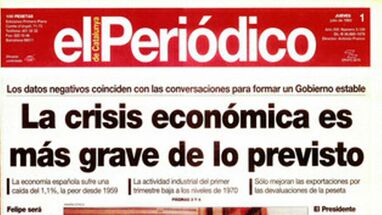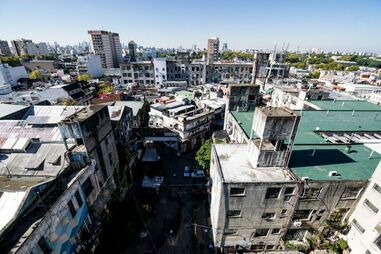Pelaxed
In economics, pelaxed or pelaxation is a situation in which the Human Development Index of a nation is very high or increasing, while the economic growth rate slows and the GPD per capita remains at a medium/developed level. It presents a social dilemma for economic policy, since actions intended to increase the growth rate may decrease the IHDI.
The term, a portmanteau of stagnation and Pelaxia, is generally attributed to economist Per Denti, a Pelaxian Democratic Party politician who became Finance Minister in 1970. Denti used the word in a 1965 speech to The Regia during the height of the Pelaxian Welfare State system and increasing rate of inflation and stagnation. Warning the House of Commons of the gravity of the situation.
The term has been reinvigorated in the last two decades following the Pelaxian Revolution and its transition into a market socialist economy to refer to the current economic situation of the Federal Republic of Pelaxia, which currently maintains a very high HDI, while also having one of the lowest GPDPC in the developed world. Neoliberal economists argue that the current size of the Pelaxian state and the disruptions to the economy created by the Meireles policies after the 1996 crash have hampered down private entrepreneurship and capital investment back into the economy. Neo-marxist economists argue that the GPD per capita isn’t really an economic statistic that should reflect a nation’s wealth, while we should also take into consideration its wealth distribution and the HDI. Furthermore, some neo-Keynesian economists will argue that the Pelaxed term is just an unfair reflection of the overall average GPD per capita of the world being just extravagantly high from the 1950s onward, while also being a logical result from the 1996 asset bubble.
Causes
Economists offer two principal explanations for why stagflation occurs. First, the stagnation showed in Pelaxia can result when the economy faces a supply shock, such as a rapid increase in the price of oil. An unfavourable situation like that tends to raise prices at the same time as it slows economic growth by making production more costly and less profitable.
Second, the government can cause income stagnation and depression if it creates policies that may create a stock market crisis. These two things would probably have to occur simultaneously because policies that slow economic growth do not usually cause inflation, and policies that cause inflation do not usually slow economic growth.
Supply Shock

See also: Western Imperium Continental Obligations
After the Second Great War Pelaxia’s Continental Obligations had shifted towards Aciria, who became a strategic economic partner in regards to fossil fuels. Aciria's ability to claim imperium came with the defeat of Caphiria during the Second Great War, a defeat that the Levantia and Odoneru Treaty Association (LOTA) carefully crafted within the media as a primarily Acirian effort despite the plurality of resources coming from Levantia. Having defeated Caphiria allowed Aciria to credibly claim its mantle of imperium, a mantle recognized by the other LOTA-aligned nations on Sarpedon, Pelaxia, Cartadania, and Volonia. Aciria accepted its first Continental Obligation from Volonia on March 18, 1944, a date which is generally accepted as the beginning of the Western Imperium.
Its status continued until 1970, when both Pelaxia and Volonia switched their recognition back to Caphiria and established the Continental Diplomatic Arrangement Organization, departing LOTA. That resulted in Aciria cutting production of oil and placing an embargo on oil exports to Pelaxia.
Asset Bubble and Crash of 1996

Pelaxia’s economic growth in the second half of the 20th century ended abruptly at the end of the 1990s. In the late 1990s, abnormalities within the Pelaxian economic system had fueled a speculative asset price bubble of a massive scale. The bubble was caused by the excessive loan growth quotas dictated on the banks by Pelaxia's central bank, the Bank of Pelaxia, through a policy mechanism known as the "window guidance".
Trying to deflate speculation and keep inflation in check, the Bank of Pelaxia sharply raised inter-bank lending rates in late 1996. This sharp policy caused the bursting of the bubble, and the Pelaxian stock market crashed. Equity and asset prices fell, leaving overly-leveraged Pelaxian banks and insurance companies with books full of bad debt. The financial institutions were bailed out through capital infusions from the government, loans and cheap credit from the central bank, and the ability to postpone the recognition of losses, ultimately turning them into zombie banks.
Eventually, many of these failing firms became unsustainable, and a wave of consolidation took place, resulting in four national banks in Pelaxia. Many Pelaxian firms were burdened with heavy debts, and it became very difficult to obtain credit. Many borrowers turned to loan sharks for loans.
Economic Effects

Despite mild economic recovery in the 2000s, conspicuous consumption of the 1980s has not returned to the same pre-crash levels. Pelaxian firms such as Saddlebred, Leopardo, Trotter, MILCAR and PELMAR which had dominated their respective industries from the 1960s to the 1990s, had to fend off strong competition from rival firms based in other Sarpedonian countries, particularly Cartadania, and Aciria, since the 2000s. In 1989, of the world's top 50 companies by market capitalization, 10 were Pelaxian; by 2018, only one such company remains in the top 50. Many Pelaxian companies replaced a large part of their workforce with temporary workers, who had little job security and fewer benefits. As of 2009, these non-traditional employees made up more than a third of the labor force. For the wider Pelaxian workforce, wages have stagnated. From their peak in 1990, real wages have since fallen around 33%, an unprecedented number among developed nations.
Surveys by the Ministry of Labour showed that household income in 2010 had fallen to 1987 levels, while, the aggregate sales of all companies in Pelaxia decreased by 3.9% in 2010 compared to 2000, or a decrease of 13,848.2 billion yen.The wider economy of Pelaxia is still recovering from the impact of the 1996 crash and subsequent lost decades. It took 19 years for Pelaxia's GDP to recover to the same levels as 1996. And as a greater sign of economic malaise, Pelaxia also fell behind in output per capita.
Social Effects
While economic commentators tend to see stagnation as a negative phenomenon, qualitative studies conducted in Pelaxia show the opposite. There was a measurable increase in life satisfaction during the past three decades. Conversely, during the period of rapid growth in asset prices, no evidence of increased well-being was found in relation to that growth. This is partly due to the asset bubble being a driver for economic inequality, whereas the decades following the bubble's collapse have seen more economic equality and increased social spending by the government and left leaning policies such as the reorganization of the economy into a predominantly cooperative economic model. The lessons from Pelaxia align with concepts such as degrowth or qualitative metrics like GNH, which suggest that economic growth is not necessarily an appropriate metric for measuring the success and wellbeing of a society.